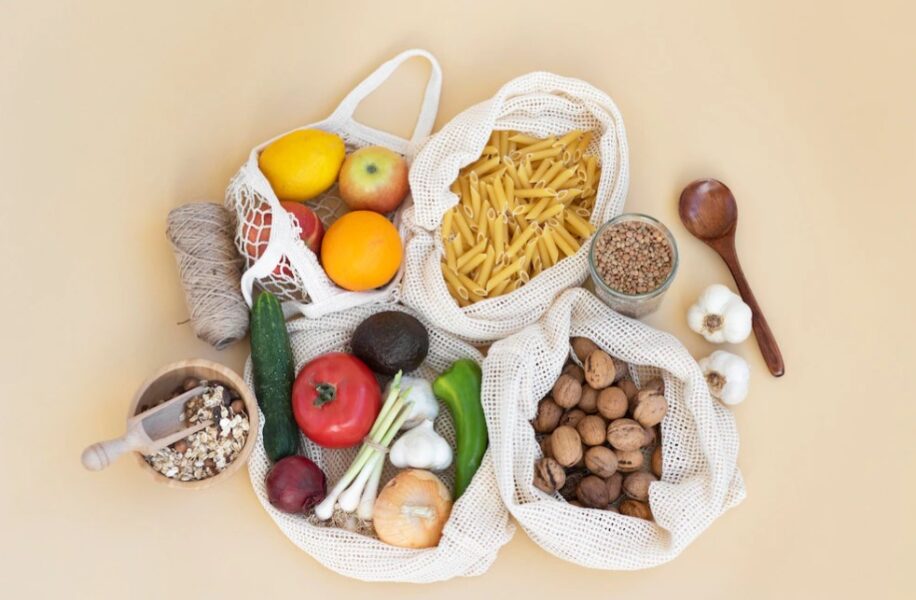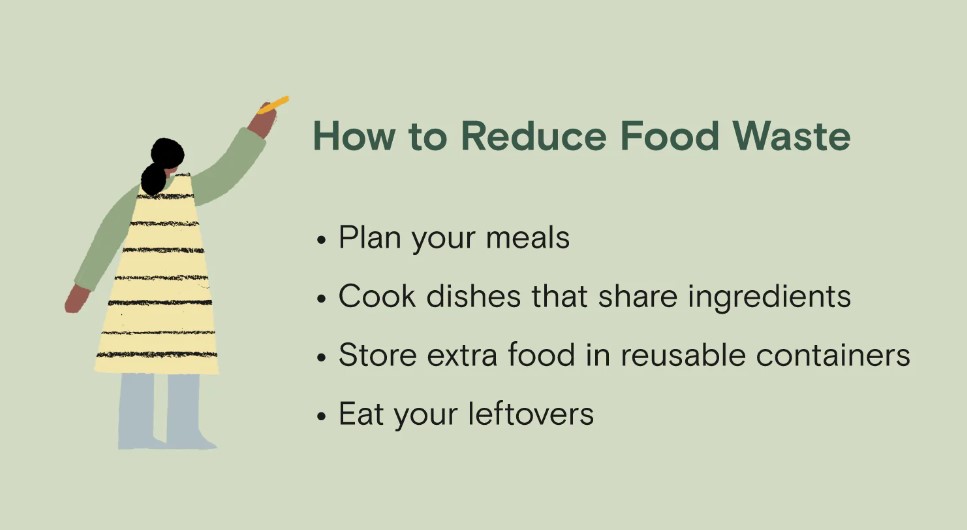
Due to a constantly expanding global population, the amount of garbage produced by people is unparalleled. Changing to a zero-waste lifestyle is one thing we can all do to make a difference, beginning with a zero-waste kitchen.
The process of reducing trash to zero is referred to as "zero-waste," although it is also referred to as "low waste," "minimum waste," and "no waste." However, it is nearly impossible for modern houses to achieve 100% zero-waste.
Not all is lost, though. If you can keep your kitchen waste under control, you can cut your waste by 50–90%. However, if not properly managed, your kitchen may become the primary source of garbage in your home, creating hazardous chemicals, dangerous plastics, and even food waste.
To help you get started, We've compiled a list of zero-waste cooking tips for beginners. A more sustainable future is achievable by even applying half of these tactics.
What is zero-waste cooking?
Zero-waste cooking means eliminating waste whenever possible in the kitchen, it can be achieved with these simple rules:
- Reduce: Cook with lesser unnecessary ingredients and make smaller portions.
- Reuse: Use food scraps, and store food in reusable containers.
- Recycle: Compost everything you can't use.
1. Use Sustainable Cleaning Products
When used with non-toxic cleansers, refillable glass or metal spray bottles are simple alternatives for plastic that may help you significantly reduce kitchen waste. Cleaning products like Herbal Strategi are eco-friendly and safe, it’s the best substitute for chemical-based products that have perilous effects on you and your family. Additionally, you can make your sustainable cleaning solution using white vinegar and baking soda.
2. Repurpose Glass Jars
There are several innovative applications for the empty jars once the last of the pickles or pasta sauce has been consumed. They can be used to store leftover soups and sauces or to arrange kitchen tools. Mason jars may be transformed into drinking glasses, which is a fantastic way to repurpose standard containers. Every glass jar you reuse prevents another glass jar from ending up in a landfill.
3. Bulk Up With Dry Goods
Buying bulk bins at your local grocery store is an easy (and affordable!) way to reduce packaging waste from pantry products. Instead of using the plastic bags given by the retailer, gather a few glass jars you've saved and fill them with beans, rice, flour, almonds, seeds, dried fruit, or any other shelf-stable item.
4. Use Plastic-Free and Reusable Food Storage
Put plastic storage containers to rest and switch to reusable, plastic-free options. Reusable and biodegradable food bags may completely replace plastic baggies, while glass containers can last a lifetime.
Plastic wrap is hardly ever recycled and often goes in the garbage. Try beeswax wraps instead; they're a washable, reusable, and biodegradable substitute with a hip style that will buzz you.
5. Compost Organic Waste

Place your leftovers in a compost container as opposed to the garbage. Composting unwanted food scraps and garbage that would otherwise be turned into landfill gas emissions creates useful products like mulch and fertilizer. Composting reduces kitchen waste while providing your soil with essential nutrients like nitrogen and potassium.
Kitchen items you can compost:
- Fruits and vegetables (don’t forget to remove any stickers!)
- Coffee grounds
- Eggshells
- Nutshells
- Grass clippings
- Leaves
Things to avoid composting:
- Meat, fish, and bones
- Fat, grease, and cooking oils
- Dairy products and egg yolks
- Fat-based salad dressings
- Rice and other cooked grains
- Oil-based nut butters
6. Conserve Water
Water conservation in the kitchen improves the entire water supply system. It protects the ecosystem by enabling water to remain in rivers, lakes, and waterways. Additionally, it conserves energy that would otherwise be required to pump, heat, filter, and treat water, which reduces air pollution brought on by the construction of water treatment facilities.
How to save water in the kitchen:
- Don’t let the water run while washing dishes unnecessarily
- Turn off the faucet while you clean vegetables
- Wash only full loads in the dishwasher
- Turn on the water only to wet and rinse while washing your hands
- Check the faucet and plumbing for leaks regularly
7. Invest in Reusable Straws
Begin your mission to rid your kitchen of plastic, one drink at a time. Stock up on reusable straws and keep them in your kitchen drawers. Every day, 500 million plastic straws are used, and many end up in landfills. For individuals who prefer the ease of a single-use choice, biodegradable straws are ideal. Glass and metal straws are of exceptional quality and durability.

Read also: Top 10 Vegan influencers to follow in India
8. Pick Reusable Napkins
Although disposable napkins are practical, millions of tons of paper waste are dumped in landfills every year. To reduce the amount of trash in your kitchen, use washable, reusable, or compostable items instead of single-use ones.
9. Eat Your Leftovers
On average, one particular waste one pound of food per day. Using up leftovers cuts down on food waste (and eliminates package waste of newly opened food items). To reduce waste and permanently ban plastic from the kitchen, give your refrigerator a makeover and convert it into the ideal storage space.
- Keep leftovers and older foods in the front, so they get used and don't end up as waste.
- Stock with plastic-free items
- Store food in reusable containers
10. Do More With Fewer Ingredients

Make a week's worth of meals and plan them out before filling your supermarket basket. Choose a few meals with similar components. Even with fewer materials and much less waste, you may still make tasty, distinctive dishes. Here are just a few advantages of meal planning for a waste-free kitchen:
- It prevents overbuying and curbs kitchen waste
- Prevents ordering takeout that has a lot of wasteful packaging, straws, and non-sustainable utensils
11. Buy Local Produce
Your kitchen waste may be reduced by purchasing locally-grown food. Because they have to travel fewer kilometers to get to you, fruits and vegetables have a lesser carbon footprint than other foods.
To lessen your use of plastic and prevent dangerous plastic bags from ending up in your kitchen and landfills, bring some reusable canvas or cotton shopping bags to the farmer's market.
12. Upcycle Food Scraps Into Tasty Recipes
Food waste may be creatively transformed into snacks and meals by upcycling. Many individuals throw away food scraps used to make a fast snack or sauce or as materials for upcycled products.
- Citrus peels: Use them to make tea or add some zest to soups and salads
- Apple cores: Blend them into your smoothies or turn them into apple jelly
- Carrot tops: Give carrot tops a new life as the main ingredient of pesto
- Potato peels: Roast them until they are crisp and add spices
Read also: Going Vegan in India





